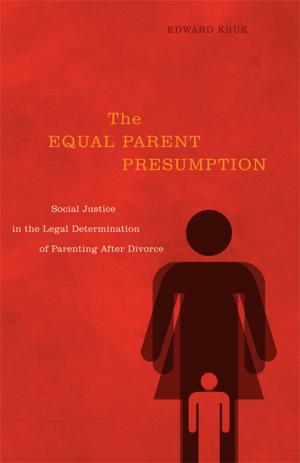Canada: The State of the Federation, 2013
Aboriginal Multilevel Governance
Nonfiction, Social & Cultural Studies, Political Science, International| Author: | ISBN: | 9781553394488 | |
| Publisher: | MQUP | Publication: | March 1, 2016 |
| Imprint: | Queen's Policy Studies | Language: | English |
| Author: | |
| ISBN: | 9781553394488 |
| Publisher: | MQUP |
| Publication: | March 1, 2016 |
| Imprint: | Queen's Policy Studies |
| Language: | English |
Traditionally associated with the federal government, Aboriginal policy has arguably become a far more complex reality. With or without formal self-government, Aboriginal communities and nations are increasingly assertive in establishing their own authority in areas as diverse as education, land management, the administration of justice, family and social services, and housing. The 2013 State of the Federation volume gathers experts and practitioners to discuss the contemporary dynamics, patterns, and challenges of Aboriginal multilevel governance in a wide range of policy areas. Recent court decisions on Aboriginal rights, notably on the duty to consult, have forced provincial and territorial governments to develop more sustained relationships with Aboriginal organizations and governments, especially in the management of lands and resources. Showing that Aboriginal governance is, more than ever, a multilevel reality, contributors address questions such as: What are the challenges in negotiating and implementing these bilateral and trilateral governance agreements? Are these governance arrangements conducive to real and sustained Aboriginal participation in the policy process? Finally, what are the implications of these various developments for Canadian federalism and for the rights and status of Aboriginal peoples in relation to the Canadian federation?
Traditionally associated with the federal government, Aboriginal policy has arguably become a far more complex reality. With or without formal self-government, Aboriginal communities and nations are increasingly assertive in establishing their own authority in areas as diverse as education, land management, the administration of justice, family and social services, and housing. The 2013 State of the Federation volume gathers experts and practitioners to discuss the contemporary dynamics, patterns, and challenges of Aboriginal multilevel governance in a wide range of policy areas. Recent court decisions on Aboriginal rights, notably on the duty to consult, have forced provincial and territorial governments to develop more sustained relationships with Aboriginal organizations and governments, especially in the management of lands and resources. Showing that Aboriginal governance is, more than ever, a multilevel reality, contributors address questions such as: What are the challenges in negotiating and implementing these bilateral and trilateral governance agreements? Are these governance arrangements conducive to real and sustained Aboriginal participation in the policy process? Finally, what are the implications of these various developments for Canadian federalism and for the rights and status of Aboriginal peoples in relation to the Canadian federation?















